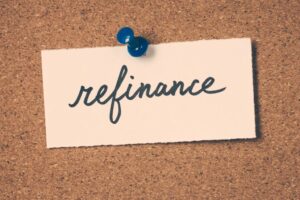Locking in the best possible interest rate on your home loan can seem like an impossible balancing act. Lenders, all play by their own specific rulebooks, and mortgage rates can be so confusing for first-time buyers. Comparing interest rates and loan amounts between different banks and private money lenders can push you into a tailspin as a borrower if you aren’t careful.
Thankfully, there are a few ways to make this process much easier. By using a mortgage calculator and a few other tricks, organizing your home buying experience can be streamlined and made far less painful.
Start planning the financials as early as you can.

Globally, the average first time homebuyer is getting older. In Australia, the first time buyer is, on average, 36 years old. This has not only changed the dynamic of the Australian marketplace, but it also means that most buyers have more time to plan their move. Once you’ve begun to think about your future living arrangements, you will want to start planning for a move into your own home with plenty of time to spare. Homebuyers now have to think about the long game. Home prices have been on a consistently upward trend over the recent decades, so saving for a home will take considerable willpower and a perfectly executed plan.
Naturally, this begins with the finances. With the help of a search through local properties and a mortgage calculator, you can build a sense of how much home you can afford on your current salary. More importantly, these initial tasks will help you determine how much money you will need to save in order to afford the type of property that you’ll want to buy.
Carefully curate your credit score.

One of the main facets of the borrowing and buying process for soon-to-be homeowners is the credit score. In the months and years leading up to purchasing your first (or next) home, you’ll want to carefully consider how to boost your credit score month after month. Your credit acts as a simple measure of your ability and commitment to paying back debts that have been incurred in your name. Everything from your student loans and credit card bills, to medical expenses and rental payments, factor into your current credit report.
Credit history is built upon all things financial that have made it into the public record. A bank or other lending institution will use this figure as a pre-screening test of the likelihood that you’ll pay the mortgage back––and therefore, a judge of the viability of investing in you and the property you want to buy. Building great credit takes time, so starting early is the best way to boost your ability to secure a great mortgage loan rate when the time comes.
Compare rates for the best deal on the market.

Finally, once you’ve found the home of your dreams and spent a year or more paying off debt, boosting your credit rating, and saving up for the down payment, it’s time to compare home loan interest rates. Lenders will use their own unique criteria for offering their repayment terms and interest rates, so it’s best to shop around in order to get a sense of the eligibility you have as a borrower. Seeking out a mortgage from a few different local lenders is also a great way to make sure that you’re getting the best possible deal on your loan. A difference of one percentage point on a 25 year mortgage can mean tens of thousands of dollars in additional repayment obligations, so making sure that you’re locking in a rock bottom rate is incredibly important.
The thing that most buyers don’t realize is that the legwork for getting a great deal on their mortgage loan begins in the years leading up to a home buying opportunity. Start early to maintain great credit and savings habits in order to take advantage of the best rates on the market.




